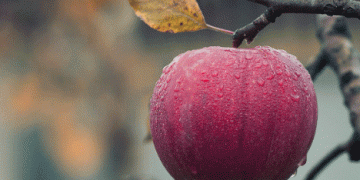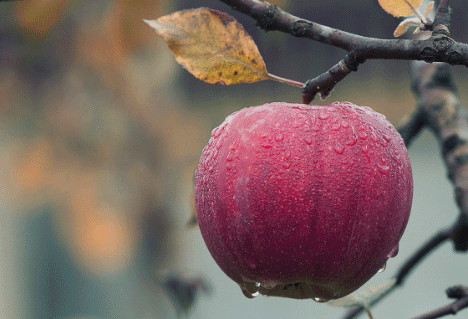As the new marketing season for Austrian table apples begins, producers and consumers alike are facing a challenging year. According to AgrarMarkt Austria (AMA), the demand for apples in July was moderate, as consumers typically favored summer fruits like strawberries, stone fruits, and melons during the warmer months. However, as the apple season starts, the market conditions are far from ideal.
One of the main factors contributing to the difficulties faced by Austrian apple producers this year was the late frost in April, which severely damaged apple crops in the country’s main production regions. The estimated yield for the 2024/25 season is expected to be down by 50% compared to the previous year. This drastic reduction in output will not only impact the quantity of apples available but also the quality, particularly for those destined for storage.
Despite the challenging growing conditions, the average price for table apples in July held steady at €1.11 per kilogram, maintaining the same level as the previous month. This price is 17% higher than the same period last year, reflecting the tighter supply and the impact of lower yields on the market. As old harvest stocks have largely been sold off, the availability of apples is becoming increasingly limited. As of July 1, AMA reported that only 11,296 tons of apples remained in storage across Austria, with 70% of that being the Golden Delicious variety.
The situation in Austria is mirrored across Europe. The World Apple and Pear Association (WAPA) reported that the EU’s overall apple harvest for the 2024/25 season is expected to be underwhelming, with the total production forecast at around 10.2 million tons—a sharp decline of 11.3% compared to the previous year. This reduction in supply across Europe is likely to keep prices firm throughout the season.
While the reduced apple harvest is a significant challenge for Austrian growers, the domestic market is expected to remain sufficiently supplied to meet demand in 2024/25. However, the combination of lower yields, quality concerns, and limited stock will likely lead to sustained higher prices for consumers. As the industry braces for these difficulties, both producers and consumers will need to adjust to the new market realities.
The Austrian apple market is facing a tough season ahead, with a significant drop in yields and potential quality issues caused by late frosts. While domestic supply is expected to meet demand, prices are likely to remain firm, driven by the reduced harvest and limited stock. This situation reflects broader trends across Europe, where apple production is also down. As a result, Austrian consumers may need to prepare for higher apple prices throughout the season.































